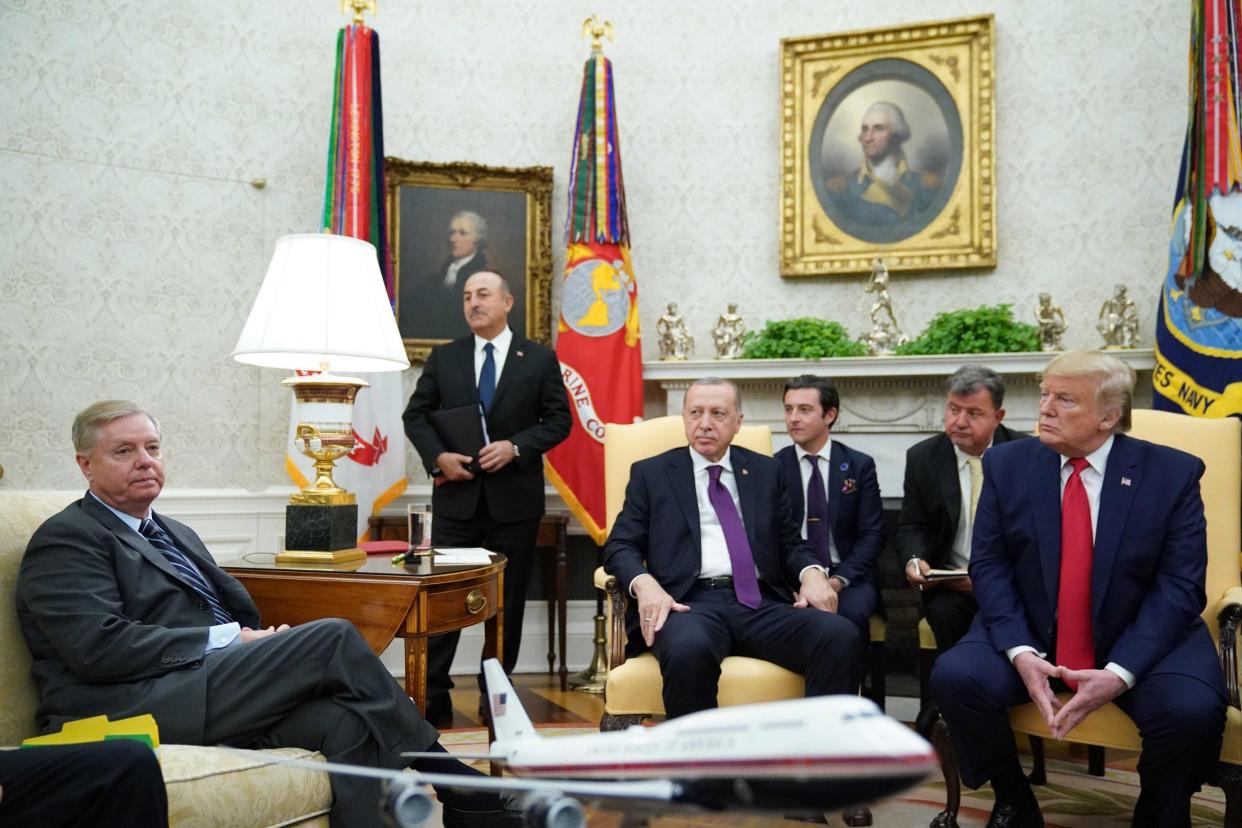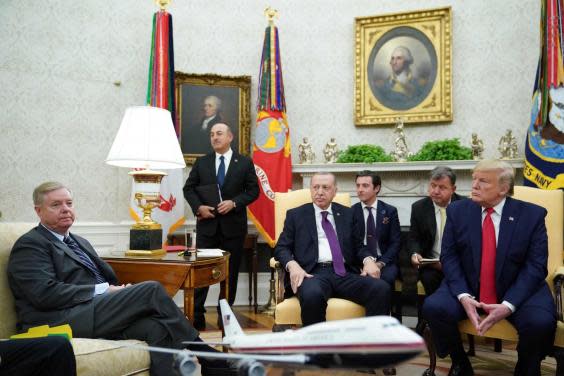White House told Lindsey Graham to block Armenia genocide resolution in Senate

Lindsey Graham revealed he blocked a resolution officially recognising Turkey’s genocide of the Armenian people following a request from the White House, because Turkish President Recep Tayyip Erdogan was visiting at the time of the vote.
The South Carolina Republican said he was asked by senior White House staff earlier this month to block the resolution after a meeting he attended in the Oval Office that was hosted by Donald Trump and included the Turkish president.
Mr Graham was one of five Republican senators present at the White House meeting who had publicly denounced Turkey’s recent invasion of northeastern Syria after Mr Trump announced his decision to pull US troops out of the region.
The senator castigated Mr Erdogan as Mr Trump “sat back and watched,” Axios reported, decrying the Syrian invasion and rejecting Mr Erdogan’s claims that Kurdish forces in the region — who are allied with the US — are part of a terrorist group.
Still, Mr Graham went on later that day to vote against the measure that surely would have upset the Turkish president, telling the news outlet he was asked by a White House legislative affairs official to “please object” to the resolution.
“After the meeting, we kind of huddled up and talked about what happened," he said. “The only reason I did it is because he [Erdogan] was still in town. ... That would've been poor timing. I'm trying to salvage the relationship if possible."
The Kurds served as America’s most important ally in battling back against the spread of the Islamic State in northeastern Syria.
Mr Graham told the news outlet he “forcefully” rejected the Turkish president’s claims surrounding the Syrian Democratic Forces, saying: “I let Turkey know that 10,000 SDF fighters, mostly Kurds, suffered, died or (were) injured, in the fight against Isis, and America will not forget that and will not abandon them."
He added that was “not going to object the next time” the resolution is put up for a vote, and that he ultimately decided to block the resolution because “with the president of Turkey in town that was probably more than the market would bear”.
However, the resolution was still blocked last week when it went up for another vote.

That’s because David Perdue, a Georgia Republican and ally of Mr Trump in the Senate, was “asked” by the White House to block the measure, according to Axios.
“Senator Perdue objected due to concerns that passage of the resolution would jeopardise the sensitive negotiations going on in the region with Turkey and other allies,” a spokesperson for the senator told the outlet.
Read more
US veterans condemn Trump for allowing ‘wholesale slaughter’ of allies

 Yahoo News
Yahoo News 
